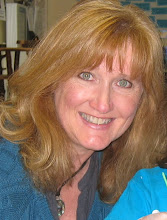My kid's happy.... I feel guilty I'm not able to stop what I'm doing to enjoy it more, to be "in the moment."
My kid spends a lot of time reading books........ I feel guilty I'm not encouraging more outdoor play.
My kid is running around outside from morning to night....... I feel guilty I'm not making sure we are reading more.
I have a close relationship with my child......... I feel guilty that maybe I'm "babying her."
My child is very independent........ I feel guilty that somehow I may have caused "attachment problems."
I think I'm seeing a pattern here: no matter what happens, I will feel guilty. What's the deal? Did this come with the parenting package? Or is being guilt-ridden just a part of my flawed psyche, something else I should feel guilty about?
When I was a younger mom I believed, deep down to my bones, that if I wasn't feeling deeply responsible for all aspects of my child's life, I just wasn't doing my job. And of course, that had to lead to guilt. Who can be everywhere, know everything, and always cover all the bases? I truly thought I could, and should be able to do all that, but I always seemed to come up short.
Because, guess what: I'm human. My unfortunate children did not have a supernatural being for a mom, poor little things.
I did not always know what they wanted for breakfast and I could not always avoid being one minute late picking them up from Kindergarten. Additionally, I could not always hide my feelings of fatigue and irritation, nor could I always creatively solve all of their problems or improve their moods for them. The birthday parties I planned for my children were not, unfortunately, the cutest and and most fun parties on the block.
By my own standards, I was often a failure.
The thing is, my standards and my feelings of accomplishment or failure had very little to do with meeting my children's actual needs. You guessed it: it was all about me.
Guilt is a selfish emotion. It focuses us inward, and forces us to ignore those around us. While we are involved in the egocentric frenzy of gnashing our teeth over allowing our child to forget their homework, we are ignoring the more important event: the "teachable moment" that our child could be experiencing, if we were available to help just a little. When we are wallowing in guilt because we were unable to prevent our toddler from a little boo-boo, we are elevating our own needs above the needs that the child has for a little comfort, a bandaid, and a hug. And often, our guilt makes the child feel even worse because they read the distress on our face, and through the psycho-social phenomenon call "social referencing" they think they should be very upset, just because we are.
It's easier to be a mom if you have less of these "guilt genes." But since my culture, upbringing, and temperament have predisposed me to guilt, I have learned that the best thing I can do for myself and my kids is to be aware of it. I am finally learning to notice when I am laying a guilt trip on myself, and I am usually able to force myself to look at things a little more rationally. Then I can relax and be more authentic and more available to my children, which is ultimately what I want for all of us.
Now if I could just stop feeling guilty about feeling guilty.




